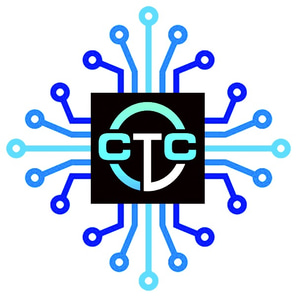CHIP TECHNOLOGIES CHENNAI
Expert Training Programs
PICK ANY BELOW COURSE JUST FOR RS.4999/- 1 MONTH DURATION
Join our job-oriented programs to master chip-level repair for various electronic devices.
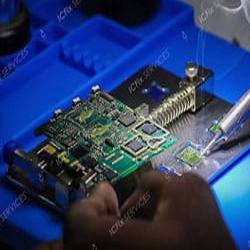
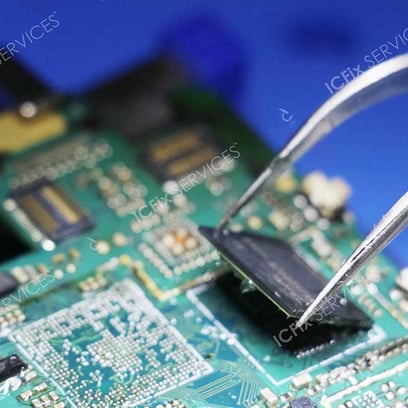
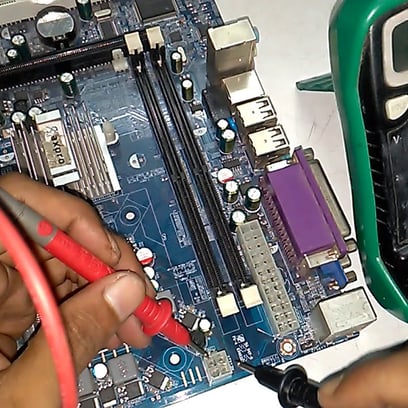
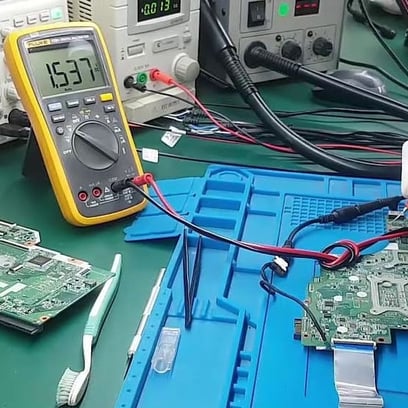
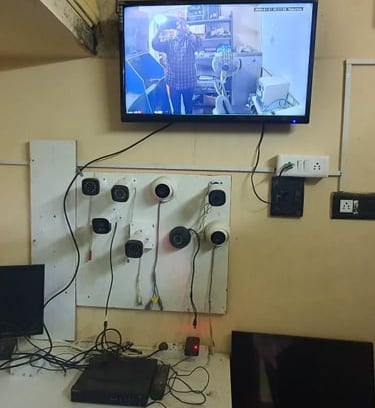
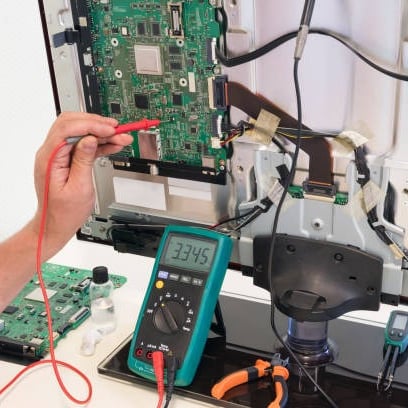
20-Day Practical Syllabus for Mobile Phone Repair & Electronics
Days 1–3: Electronics Fundamentals & Soldering Techniques
Day 1: Introduction to basic electronic components (resistors, capacitors, transistors, diodes, ICs).
Day 2: Hands-on soldering and desoldering of through-hole components.
Day 3: Introduction to SMD components; practice soldering and desoldering SMD resistors and capacitors.
Days 4–5: Advanced SMD Rework & Jumper Techniques
Day 4: SMD rework station setup; reheating and mounting SMD and BGA chips.
Day 5: Jumper techniques for repairing broken PCB traces; using jumper wires and PCB traces effectively.
Days 6–7: Mobile Phone Hardware Servicing
Day 6: Disassembly and assembly of various mobile phone models.
Day 7: Identification and replacement of faulty components (charging ports, power ICs, display connectors).
Days 8–9: Combo Replacement & OCA Lamination
Day 8: Combo replacement procedures; handling LCD and digitizer assemblies.
Day 9: OCA lamination process; tools and techniques for lamination and screen refurbishing.
Days 10–11: Software Flashing & Unlocking
Day 10: Introduction to mobile operating systems; flashing firmware using tools like Miracle Box, Z3X.
Day 11: Unlocking techniques; removing FRP locks, pattern locks, and IMEI repair.
Days 12–13: Troubleshooting & Fault Diagnosis
Day 12: Using multimeters and DC power supplies for fault detection.
Day 13: Advanced troubleshooting; analyzing circuit diagrams and identifying faults.
Days 14–15: Water Damage Repair & Ultrasonic Cleaning
Day 14: Techniques for handling water-damaged phones; drying and component inspection.
Day 15: Ultrasonic cleaning procedures; restoring functionality to affected components.
Days 16–17: Power Circuit & Battery Management
Day 16: Understanding power circuits; diagnosing charging issues and power IC failures.
Day 17: Battery testing and replacement; ensuring proper battery health and performance.
Days 18–19: Display & Audio Circuit Repair
Day 18: Diagnosing and repairing display issues; handling LCD and touch screen problems.
Day 19: Audio circuit troubleshooting; repairing speaker, microphone, and vibrator motor issues.
Day 20: Final Assessment & Certification
Day 20: Comprehensive practical test covering all modules; evaluation and certification.
🛠️ Tools & Equipment Recommended
Soldering iron and SMD rework station
Multimeter and DC power supply
Ultrasonic cleaner
OCA laminating machine
Flashing tools (e.g., Miracle Box, Z3X)
Jumper wires and PCB repair kits
DURATION - DAILY 2 HOURS - 1MONTH - FEES JUST RS.4999/-
20-Day Syllabus for Android Mobile eMMC Repair & Chip-Level Training
Days 1–3: Introduction to eMMC Technology & Basic Electronics
Day 1: Overview of eMMC storage technology, architecture, and applications.
Day 2: Introduction to basic electronics concepts: voltage, current, resistance, and power.
Day 3: Hands-on training with multimeters, oscilloscopes, and other essential tools.
Days 4–6: Schematic Analysis & Component Identification
Day 4: Understanding schematic diagrams and PCB layouts.
Day 5: Identifying and testing components: resistors, capacitors, ICs, and transistors.
Day 6: Tracing power and signal lines on PCBs; using thermal cameras for fault detection.
Days 7–9: eMMC Chip-Level Repairs & Reballing Techniques
Day 7: Techniques for removing and replacing eMMC chips.
Day 8: Reballing eMMC and CPU chips using stencils and solder paste.
Day 9: Hands-on practice with micro-jumpers and under-mask jumper techniques.
Days 10–12: Data Recovery from eMMC Chips
Day 10: Introduction to data recovery concepts and tools.
Day 11: Techniques for recovering data from dead or damaged eMMC chips.
Day 12: Hands-on practice with Easy JTAG Plus, UFI Box, and other recovery tools.
Days 13–15: Advanced Troubleshooting & Repair Techniques
Day 13: Diagnosing and repairing boot loops, hang-on-logo, and dead boot issues.
Day 14: Handling water-damaged devices; ultrasonic cleaning methods.
Day 15: Reprogramming eMMC chips; expanding internal storage (e.g., 8GB to 16GB).
Days 16–18: Software Flashing & Unlocking
Day 16: Introduction to mobile operating systems and flashing tools.
Day 17: Flashing firmware using UFI Box, UMT Pro, and other tools.
Day 18: Unlocking FRP, pattern, PIN, and other security locks.
Days 19–20: Final Assessment & Certification
Day 19: Comprehensive practical test covering all modules.
Day 20: Evaluation, feedback, and certification ceremony.
🛠️ Recommended Tools & Equipment
Hardware Tools: Soldering iron, rework station, hot air gun, thermal camera, ultrasonic cleaner.
Software Tools: Easy JTAG Plus, UFI Box, UMT Pro, JTAG Plus, Miracle Box.
Consumables: Soldering paste, flux, stencils, jumper wires, PCB stands.
ADVANCED ANDROID MOBILE PHONE EMMC & NANO BGA CHIP LEVEL SERVICE TRAINING
DURATION - DAILY 2 HOURS - 1MONTH - FEES JUST RS.4999/-
20-Day Syllabus: A+ Hardware PC & Laptop Servicing
Days 1–3: Introduction to Electronics & Computer Hardware Basics
Day 1: Overview of electronics fundamentals; understanding voltage, current, resistance, and power.
Day 2: Introduction to computer hardware components: motherboard, CPU, RAM, storage devices, and power supply.
Day 3: Safety protocols and tool handling; using multimeters and oscilloscopes
Days 4–6: Assembling & Disassembling PCs and Laptops
Day 4: Step-by-step assembly of a desktop PC; connecting motherboard, CPU, RAM, and peripherals.
Day 5: Disassembling and reassembling laptops; identifying and handling internal components.
Day 6: Troubleshooting common assembly issues; ensuring proper cable management and
Days 7–9: Advanced Hardware Troubleshooting
Day 7: Diagnosing and repairing motherboard issues; identifying faulty capacitors, ICs, and traces.
Day 8: SMPS (Switch Mode Power Supply) servicing; testing and replacing power supply components.
Day 9: Handling and repairing laptop-specific components: DC jack, charging circuit, and display
Days 10–12: Operating System Installation & Configuration
Day 10: Installing Windows 10 and 11; partitioning hard drives and setting up file systems.
Day 11: Installing necessary drivers; configuring BIOS/UEFI settings for optimal performance.
Day 12: Setting up user accounts, network configurations
Days 13–15: Driver Installation & Software Configuration
Day 13: Installing and updating device drivers for graphics, audio, network, and storage devices.
Day 14: Configuring peripheral devices: printers, scanners, and external storage.
Day 15: Installing essential software: antivirus, productivity suites, and utility tools.
Days 16–18: Networking Basics & Internet Configuration
Day 16: Understanding networking fundamentals; setting up LAN and Wi-Fi connections.
Day 17: Configuring network settings; troubleshooting connectivity issues.
Day 18: Setting up shared folders and printers; basic network security practices.
Days 19–20: Final Assessment & Certification
Day 19: Comprehensive practical test covering all modules; diagnosing and repairing hardware and software issues.
Day 20: Evaluation, feedback session, and certification
🛠️ Recommended Tools & Equipment
Hardware Tools: Soldering iron, multimeter, screwdriver set, thermal paste, heat gun.
Software Tools: Windows installation media, driver update utilities, antivirus software.
Diagnostic Tools: POST card, power supply tester, laptop disassembly tools.
ADVANCED A+ HARDWARE PC & LAPTOP CARD LEVEL SERVICING & SOFTWARE REPAIRS TRAINING
DURATION - DAILY 2 HOURS - 1MONTH - FEES JUST RS.4999/-
20-Day Syllabus: PC & Laptop Chip-Level Servicing
Days 1–3: Introduction to Electronics & Basic Tools
Day 1: Overview of basic electronics concepts: voltage, current, resistance, and power. Introduction to AC/DC circuits.
Day 2: Identification and testing of electronic components: resistors, capacitors, diodes, transistors, MOSFETs, and ICs.
Day 3: Hands-on training with tools: digital multimeter, soldering/desoldering iron, hot air gun, and BGA rework station.
Days 4–6: Motherboard Architecture & Schematic Understanding
Day 4: Study of motherboard block diagrams and signal flow.
Day 5: Understanding and reading motherboard schematics.
Day 6: Tracing power sequences and voltage rails on the Motherboard.
Days 7–9: Voltage Regulation & Power Supply Sections
Day 7: Understanding Voltage Regulator Modules (VRM) and their role in power distribution.
Day 8: Identifying and testing VRM circuits using a digital multimeter and oscilloscope.
Day 9: Troubleshooting power-related issues: no power, automatic shutdown, and charging
Days 10–12: Signal Tracing with Oscilloscope
Day 10: Introduction to oscilloscope functions and settings.
Day 11: Signal tracing for clock generators, reset signals, and power good signals.
Day 12: Analyzing waveforms for troubleshooting: identifying faulty signals and components.
Days 13–15: BIOS Programming & Troubleshooting
Day 13: Understanding BIOS and its role in motherboard functionality.
Day 14: BIOS chip identification and removal techniques.
Day 15: BIOS programming using EEPROM programmer; flashing and restoring
Days 16–18: Advanced Chip-Level Troubleshooting
Day 16: Using diagnostic tools: POST card, CPU socket tester, and RAM tester.
Day 17: Troubleshooting common motherboard issues: no display, overheating, and USB failures.
Day 18: Hands-on practice with real-world motherboard faults
Days 19–20: Final Assessment & Certification
Day 19: Comprehensive practical test covering all modules.
Day 20: Evaluation, feedback session, and certification ceremony.
🛠️ Recommended Tools & Equipment
Diagnostic Tools: Digital multimeter, oscilloscope (DSO), POST card, CPU/RAM testers.
Programming Tools: EEPROM programmer, BIOS programmer.
Rework Tools: Soldering/desoldering iron, hot air gun, BGA rework station.
Supportive Tools: Laptop motherboard block diagrams, schematics, and datasheets.
ADVANCED MASTER LEVEL CHIP LEVEL SERVICE TRAINING FOR PC & LAPTOP
DURATION - DAILY 2 HOURS - 1MONTH - FEES JUST RS.4999/-
20-Day Syllabus: CCTV Camera Installation & Maintenance
Days 1–3: Introduction to CCTV Systems & Basic Electronics
Day 1: Overview of CCTV systems: Analog, IP, and Hybrid (DVR, NVR, XVR). Introduction to basic electronics concepts.Connectors , Power supplies , Baluns etc...
Day 2: Understanding passive and active components: Resistors, capacitors, diodes, transistors, MOSFETs, and ICs.
Day 3: Hands-on exercises: Identifying and testing components using multimeters and SMD
Days 4–6: CCTV Camera Types & Installation Techniques
Day 4: Exploring different types of CCTV cameras: Dome, bullet, PTZ, and IP cameras.
Day 5: Camera selection criteria based on location, lighting, and coverage area.
Day 6: Practical installation: Mounting cameras, adjusting angles, and ensuring optimal field of view.
Days 7–9: DVR, NVR & XVR Systems
Day 7: Introduction to DVRs: Setup, configuration, and connecting cameras.
Day 8: Understanding NVRs: Network-based recording, IP camera integration.
Day 9: Exploring XVRs: Hybrid systems supporting both analog and IP
Days 10–12: Networking & Remote Access
Day 10: Basics of networking: LAN, WAN, IP addressing, and routers.
Day 11: Configuring remote access: Setting up DDNS, P2P, and port forwarding.
Day 12: Mobile viewing: Installing and configuring CCTV apps on smartphones and tablets.
Days 13–15: Troubleshooting & Maintenance
Day 13: Common issues: No display, poor image quality, and connectivity problems.
Day 14: Diagnostic tools: Using multimeters, cable testers, and network analyzers.
Day 15: Preventive maintenance: Cleaning lenses, checking cables, and updating firmware.
Days 16–18: Advanced Features & Integration
Day 16: Motion detection and alert systems.
Day 17: Integrating CCTV with other security systems: Alarms, access control, and intercoms.
Day 18: Cloud storage solutions: Configuring cloud backups and remote
Days 19–20: Final Project & Certification
Day 19: Capstone project: Designing and installing a complete CCTV system for a mock site.
Day 20: Review, troubleshooting, and certification
🛠️ Recommended Tools & Equipment
Hardware Tools: Soldering iron, crimping tools, cable testers, drill, screwdriver set.
Software Tools: CCTV configuration software, mobile apps for remote viewing.
Diagnostic Tools: Multimeter, network analyzer, camera lens cleaning kit.
ADVANCED CCTV & IP CAMERA MASTER LEVEL TECHNICIAN COURSE
DURATION - DAILY 2 HOURS - 1MONTH - FEES JUST RS.4999/- ( NOTE NO PANEL REPAIR TRAINING IN THIS COURSE )
20-Day Syllabus: Power Electronics & Chip-Level Servicing
Days 1–3: Introduction to Power Electronics & Basic Components
Day 1: Overview of power electronics; understanding voltage, current, resistance, and power. Introduction to AC/DC circuits.
Day 2: Identification and testing of electronic components: resistors, capacitors, diodes, transistors, MOSFETs, and ICs.
Day 3: Hands-on training with tools: digital multimeter, soldering/desoldering iron, hot air gun, and BGA rework station.
Days 4–6: SMPS (Switch Mode Power Supply) Fundamentals
Day 4: Introduction to SMPS: types (buck, boost, buck-boost), components, and working principles.
Day 5: SMPS circuit analysis: rectifier, filter, oscillator, transformer, and feedback mechanisms.
Day 6: Troubleshooting SMPS: common faults, voltage tracing, and fault isolation
Days 7–9: Monitor Power Board Servicing
Day 7: Monitor power board architecture: power input, rectification, filtering, and regulation.
Day 8: Fault diagnosis in monitor power boards: no power, flickering, and color issues.
Day 9: Hands-on repair: replacing faulty components, soldering techniques, and
Days 10–12: TV Power Board Chip-Level Servicing
Day 10: Understanding TV power board components: SMPS, inverter, T-CON, and main board.
Day 11: Identifying and repairing common faults: no display, backlight issues, and power cycling.
Day 12: Advanced troubleshooting: using oscilloscopes for signal tracing and voltage
Days 13–15: Cold Tracing & Hot Checking
Day 13: Diagnosing smps power board all sections , signal tracing etc..
Day 14: Repairing monitor all sections .
Day 15: Servicing Lcd and Led Tv
Days 16–18: Advanced Troubleshooting & Repair
Day 16: Using diagnostic tools: multimeter, oscilloscope, and thermal camera for fault detection.
Day 17: Component-level repair: replacing SMD components, reballing ICs, and BIOS programming.
Day 18: Preventive maintenance: cleaning, thermal management, and firmware updates.
Days 19–20: Final Project & Certification
Day 19: Capstone project: diagnosing and repairing a faulty power board from a monitor or TV.
Day 20: Review, troubleshooting, and certification exam.
🛠️ Recommended Tools & Equipment
Diagnostic Tools: Digital multimeter, oscilloscope (DSO), thermal camera.
Rework Tools: Soldering/desoldering iron, hot air gun, BGA rework station.
Programming Tools: EEPROM programmer, BIOS programmer.
Supportive Tools: Laptop motherboard block diagrams, schematics, and datasheets.
ADVANCED POWER ELECTRONICS , SMPS , MONITOR & TV CHIP LEVEL SERVICE TRAINING
DURATION - DAILY 2 HOURS - 1MONTH - FEES JUST RS.4999/-
Pc & Laptop Chip Level Repair Course
Android Mobile Phone Emmc & Nano Chip Level Service Course ( Hardware & Software )
Learn advanced Card level diagnostics and repair methods for laptops and desktops.
Learn advanced Chip level diagnostics and repair methods for laptops and desktops.
Hands-on training in Emmc Data Recovery , Dead Phone Repair , Chip reballing , Schematics etc...
CCTV Repair Course
Pc & Laptop Repair Course
Get trained Installation & repair for CCTV camera systems and Ip Cameras.
Get trained in Power elctronics , smps , monitor and tv repair
Power Electronics , Smps , Monitor & Tv Power Board Chip level Repair Course
Hands-on training in mobile motherboard repair and troubleshooting techniques for devices.
Android Mobile Phone Repair Course ( Hardware & Software )
ADVANCED ANDROID MOBILE PHONE SERVICING HARDWARE & SOFTWARE TRAINING
Repair Training
Expert training for mobile, laptops, and CCTV repairs since 1999.


Hands-on Skills
Our courses focus on practical skills for hardware diagnosis and repair, preparing students for real-world challenges in mobile and computer servicing with industry-relevant techniques.
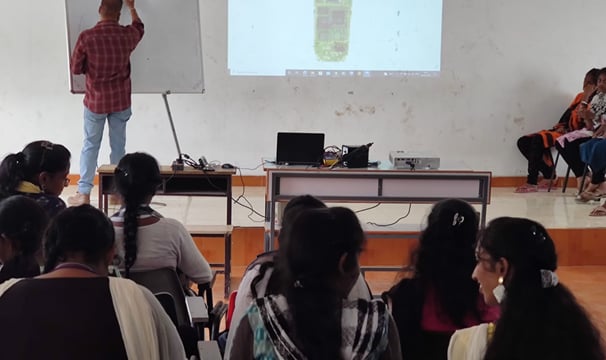

Certified Programs
Offering ISO-certified training programs with government endorsement, ensuring quality education in chip-level repair for students aspiring to enter the technology service industry.

The training at Chip Technologies transformed my skills in chip-level repairs. Highly recommended for aspiring technicians!
Ravi Kumar

Exceptional training! The hands-on approach at Chip Technologies prepared me for real-world repair challenges effectively.
Anita Roy

